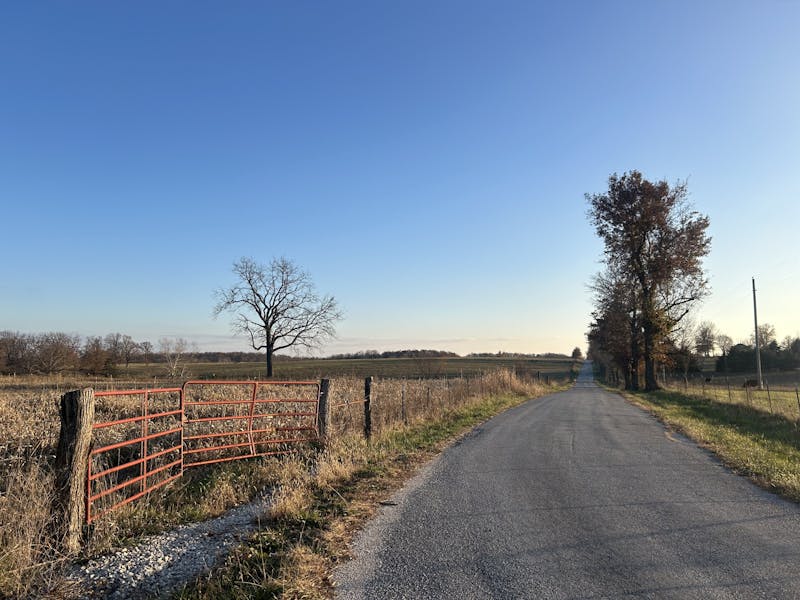Science
Missing Peacocks Spark Reflection on Beauty and Memory

The absence of peacocks in a small town in southwest Missouri has prompted reflections on memory and emotion from local poet and student, Riley Strait. In a piece shared with his poetry class, Strait confronted his struggles with expressing genuine feelings in his writing, triggered by the sudden disappearance of these once-ubiquitous birds.
The peacocks, once a familiar sight in the town where Strait’s grandmother resides, were seen as both a nuisance and a symbol of beauty. They had become so commonplace that their presence was often overlooked. However, the decision to remove them was made by the city, leading to their relocation to private homes. The poet’s realization of their absence struck him during a recent visit to the park, where he fondly remembered swinging on the swings while the peacocks roamed freely.
Strait’s reflections reveal a deeper commentary on how the mundane can mask the extraordinary. He likened the loss of the peacocks to a bittersweet feeling, acknowledging that their removal meant more than just the absence of colorful birds. It represented a loss of magic in a place that often struggles with challenges. He expressed a desire to articulate this complexity in his poetry but found himself hesitant to unveil his true emotions.
In his writing, Strait grapples with the contradiction of feeling more comfortable sharing personal truths as a journalist than as a poet. Even as he navigates the emotional landscape surrounding the peacocks, he reflects on his upbringing—his father, a stoic creative writer, and his mother, a dedicated journalist—suggesting that this duality may inform his artistic expression.
Strait’s struggle is not uncommon among writers. The challenge of conveying emotion authentically can lead to self-doubt and hesitation. He notes that while he can openly share personal stories in journalistic formats, the vulnerability required in poetry often feels overwhelming. The peacocks, in their silent departure, have become a metaphor for the emotions he has yet to fully confront.
As he attempts to write about the peacocks, Strait acknowledges that he often resorts to abstract representations, using placeholders instead of names. This tactic allows him to sidestep the emotional weight tied to specific memories and places. He recognizes that this avoidance may detract from the authenticity of his work, as he struggles to capture the essence of what the peacocks represented in his life.
The poet’s reflections culminate in a poignant realization: the peacocks embodied a sense of hope and beauty in a world where such qualities can feel scarce. Their removal raises questions about what is lost when the ordinary is taken away, and how memory shapes our understanding of beauty in familiar places.
In sharing his personal journey, Riley Strait invites readers to reflect on the nuances of memory, loss, and the challenge of authentic expression. His narrative serves as a reminder that even the most mundane experiences can hold profound significance, urging us to confront our emotions and the stories we tell about ourselves and our communities.
-

 Lifestyle3 months ago
Lifestyle3 months agoLibraries Challenge Rising E-Book Costs Amid Growing Demand
-

 Sports3 months ago
Sports3 months agoTyreek Hill Responds to Tua Tagovailoa’s Comments on Team Dynamics
-

 Sports3 months ago
Sports3 months agoLiverpool Secures Agreement to Sign Young Striker Will Wright
-

 Lifestyle3 months ago
Lifestyle3 months agoSave Your Split Tomatoes: Expert Tips for Gardeners
-

 Lifestyle3 months ago
Lifestyle3 months agoPrincess Beatrice’s Daughter Athena Joins Siblings at London Parade
-

 World3 months ago
World3 months agoWinter Storms Lash New South Wales with Snow, Flood Risks
-

 Science3 months ago
Science3 months agoTrump Administration Moves to Repeal Key Climate Regulation
-

 Business3 months ago
Business3 months agoSoFi Technologies Shares Slip 2% Following Insider Stock Sale
-

 Science2 months ago
Science2 months agoSan Francisco Hosts Unique Contest to Identify “Performative Males”
-

 Science3 months ago
Science3 months agoNew Tool Reveals Link Between Horse Coat Condition and Parasites
-

 Sports3 months ago
Sports3 months agoElon Musk Sculpture Travels From Utah to Yosemite National Park
-

 Science3 months ago
Science3 months agoNew Study Confirms Humans Transported Stonehenge Bluestones









